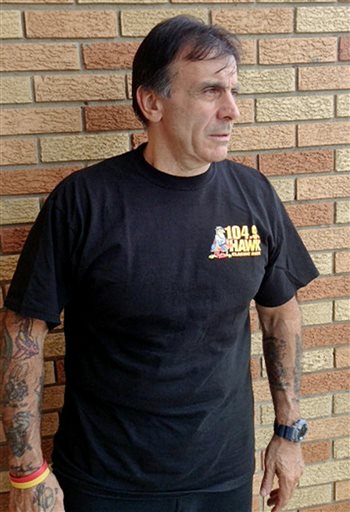Clueless cops
Whoever decided witnesses should swear to tell the whole truth and nothing but the truth should have considered making law enforcement agents do it first. The last several months have been marked by many media exposures for some policemen and even judges who were not rightfully following the law. For those who work with the law on a daily basis there is one main trap to be avoided: do not take justice into your own hands.
Detective Louis Scarcella should have kept this in mind before he tampered with various pieces of evidences. After almost 15 years after his retirement, the detective is being investigated for some 50 homicide convictions by the Conviction Integrity Unit after various complaints were made by people from different cases against Scarcella’s conduct. The detective’s name was first looked into after David Ranta, a man convicted of killing a rabbi, was freed after spending 23 years in jail. Prosecutors determined the wrongful conviction arose from flawed police work by Scarcella and a partner who did not follow the lead on a stronger suspect in the case. A more thorough investigation also discovered the two detectives let incarcerated criminals smoke crack and cocaine and visit prostitutes in return for their incrimination of Ranta. One witness also told investigators Scarcella had told him who to pick from a lineup.
“People will look for blame,” said John O’Mara, who leads the Conviction Integrity Unit. “Our goal isn’t to look for blame. Our goal is to correct injustice.”
And indeed there will be a lot of correction needed. The police also noticed a link between Scarcella’s cases; a common eyewitness was conveniently the only witness to various homicide investigations the detective had been assigned to. Teresa Gomez, both a prostitute and drug addict, testified she saw Robert Hill, a drug dealer, commit two separate murders. In the first murder she told the court she had seen Hill through a keyhole in the door of a closet she was hiding in shoot another man. Hill was acquitted after his family hired a private investigator who proved there was not even a keyhole in the closet Gomez claimed to be. In the second murder charge against Hill, Gomez was once again the only witness to the crime but had several inconsistencies in her testimony with what the evidence showed, including from which angle the victim was shot at.
Though investigations have not yet been concluded, Scarcella is not the only one who brought unwanted attention to his actions. Judge G. Todd Baugh of Montana has recently brought national attention to himself after he sentenced a convicted rapist to a mere 31 days in prison. Stacey Dean Rambold, 49, was accused of three instances of nonconsensual sex with Cherice Moralez who was at the time his ninth-grade student. During the judicial process, Moralez took her own life at the age of sixteen and prosecutors entered into what is known as a “deferred prosecution agreement.” This meant all charges against Rambold would be dropped if he completed a sex-offender correction program. Rambold, though, fell short of his side of the agreement when he came into contact with children (his nieces and nephews) and had relationships with women he did not report to his counselors, clear violations of his terms.
That was when Judge Baugh and Rambold met. After prosecutors took Rambold to court for violating his agreement, Judge Baugh decided his infractions were too minor to be seriously considered and at one point even mentioned the victim “looked older than her chronological age”. He then did the unimaginable: he cleared all of Rambold’s 15-year-sentence except for 31 days.
Outraged, prosecutors appealed the judge’s decision and Baugh had to overrule his own conviction after he acknowledged what he had done was technically illegal. For the crimes Rambold had been convicted of, the minimum sentence was of two years, such that the Judge changed his sentence accordingly but did not extend it beyond 24 months. Needless to say, Cherize Moralez’s mother was outraged by the entire process saying how she could not believe “how lucky [Rambold] is.”
Because of how some law enforcement agents act, innocent people are being sent to jail while others are not receiving the punishment they deserve. Some times this the fault of one person, but examples like that of Detective Scarcella and Judge Baugh also show how individual mistakes can seep through the cracks of a judicial foundation. Though any justice system is far from perfect, it is still important for legal systems to always have ways of investigating its own members so that those who police are also policed.
Sources: nytimes.com, cnn.com

Annie Bananie, as she is known in her kindergarten gang, has been with The Talon for two years now. She has always been in the News section, which, as...






